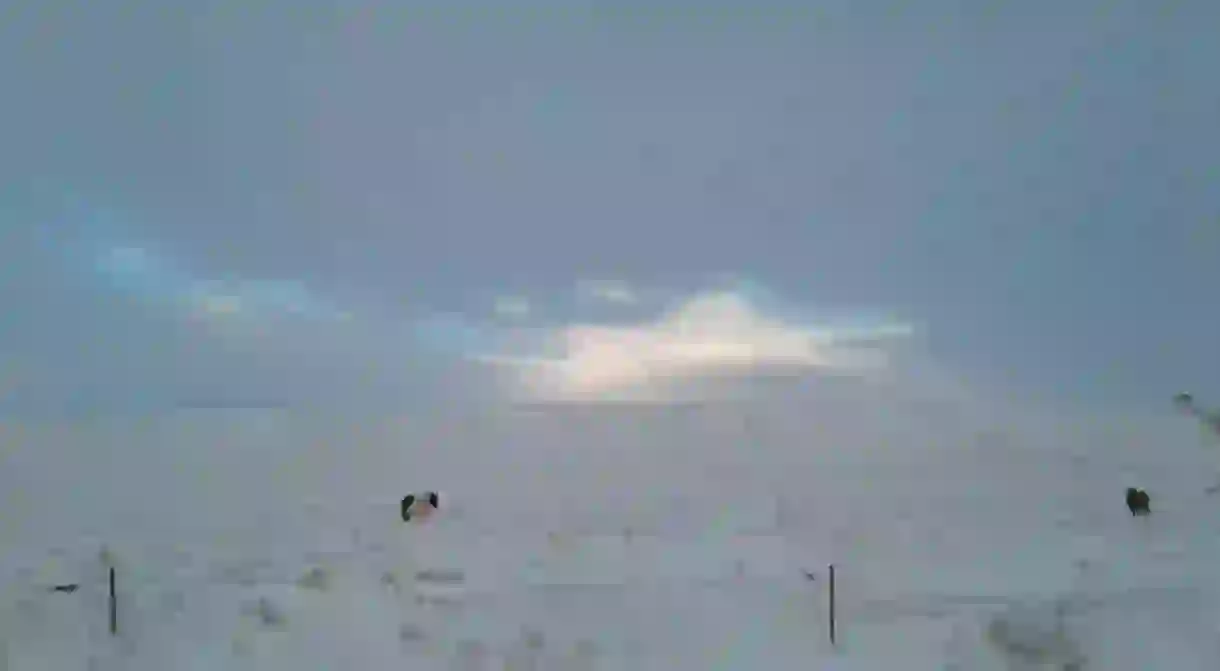When Is the Best Time of Year to Visit Iceland?

With Iceland’s significant increase in tourists in the past decade, there has also been a shift in the seasons in which the island is most frequently visited. While summer was and still is the most popular time to visit because of the mild climate and long summer nights ideal for exploring, more and more travelers are making their way in winter to see the same beauty in a different and very fleeting light. Explore our assessment of the months of the year to help you decide when to make your trip.
January
January is one of the darkest months, receiving about four hours of hazy daylight each day, which can make for quite an interesting experience in itself if you have never witnessed it before. Most Icelanders are catching up on sleep after the Christmas and New Years festivities, however, one can see a great fireworks display and many bonfires on January 6th at the end of advent when all the Santa Clauses leave for the mountains again. January is also a great time to see the Northern Lights.

February
February is also a pretty dark time, although the days begin to be markedly longer. February has the atmospheric and instrumental music festival called Dark Music Days at Harpa concert hall and the Food and Fun Festival, a culinary festival in which chefs gather in Reykjavik to revel in the culinary. This is also the month in which Icelanders celebrate the cured and salted meat that their ancestors were forced to eat in order to survive the long winter months at a feast called a Þorrablót. Also, a great month to see the Northern Lights.
March
Most of the month of March in Reykjavik is flavoured by the annual festival, Design March, which includes design exhibitions, workshops, pop-up shops and concerts all throughout the month and all over town. There is also the Reykjavik Blues Festival at Kex Hostel towards the end of the month. This is the month when the weather can be ever-changeable, with some days feeling like spring is just around the corner and other days feeling like it is still January. After Easter, however, it is pretty safe to say there will be no more blizzards.

April and May
April in Reykjavik is when the days have definitely evened out and there is noticeably more daylight than nighttime. Spring is in the air and summer just around the corner. This is a great month to explore the countryside perhaps before the on-rush of tourist season in the summer. Head to Ísafjörður in the West Fjörds for Aldrei for Ég Suður music festival. May features the beginning of Reykjavik Arts Festival, an annual arts festival including many notable musicians and art exhibitions all around town. This is also a great month to check out the graduation exhibition shows at the art schools. The weather can be ever-changeable but noticeably bright and usually chilly. Not quite picnic weather yet.
June
This is the month when summer really kicks off with a plethora of events and festivals all over the island. In the neighboring city of Reykjavik, Hafnarfjörður, you can find the Viking Festival where reenactments of Viking-era Iceland take place. June also is the month in which Iceland gained independence from Denmark in 1945, celebrated on June 17th with memorials all over the country and a parade in Reykjavik. In June, you can also celebrate the summer solstice with the Pagan religion at þingvellir National Park with an annual ceremony in a beautiful historic setting where tectonic plates meet.

July
In early July, the northern village of Siglufjörður hosts the annual Folk Festival. During July, many Icelanders are using the time away from work to travel either in the Icelandic countryside, staying at summerhouses or traveling outside of the country. This is a hugely popular tourist time of the year in which there are many people camping around the island and making the most of the neverending sunlight. During June and July, the longest and brightest months of the year, you can watch the sun just dip to the horizon before rising up again, leaving no moment for nighttime darkness.
August
August in Iceland sees a number of events, including the popular Culture Night towards the end of the month, in which the whole city of Reykjavik celebrates with long opening hours at museums, many exhibitions and fireworks. August also holds the Innipúkinn music festival held in Reykjavik during the long holiday weekend for shop owners. Towards the end of the month, you can start to see Northern Lights appearing again.
September and October
The cultural highlight of this month is Reykjavik International Literature Festival, in which well-known authors are featured at events around the city, sponsored by UNESCO Reykjavik City of Literature. September can be either mild and feeling like an extended summer month, or cold and like winter has started early. You can definitely enjoy the crisp weather and fall colours on the few trees. October sees the Reykjavik International Film Festival return with lots of screenings and workshops.

November and December
November is highlighted by Iceland Airwaves Music Festival, which pulls many international and local acts to Reykjavik for a week of compact concerts and exhibitions. There can sometimes still be an autumn feeling in the air that is slowly turning towards winter. It is definitely a great time to drive into the countryside before the roads become too icy throughout the winter rotation of snow, ice and sleet through the shifting temperatures. December is, of course, all about Jól, and in Iceland, the tradition is quite extensive, with 13 days leading up to December being devoted to 13 different Santa Clauses who come from a mythical mountain to wreak havoc and merriment. After Christmas, New Years is well-celebrated with bonfires and legendary fireworks.













